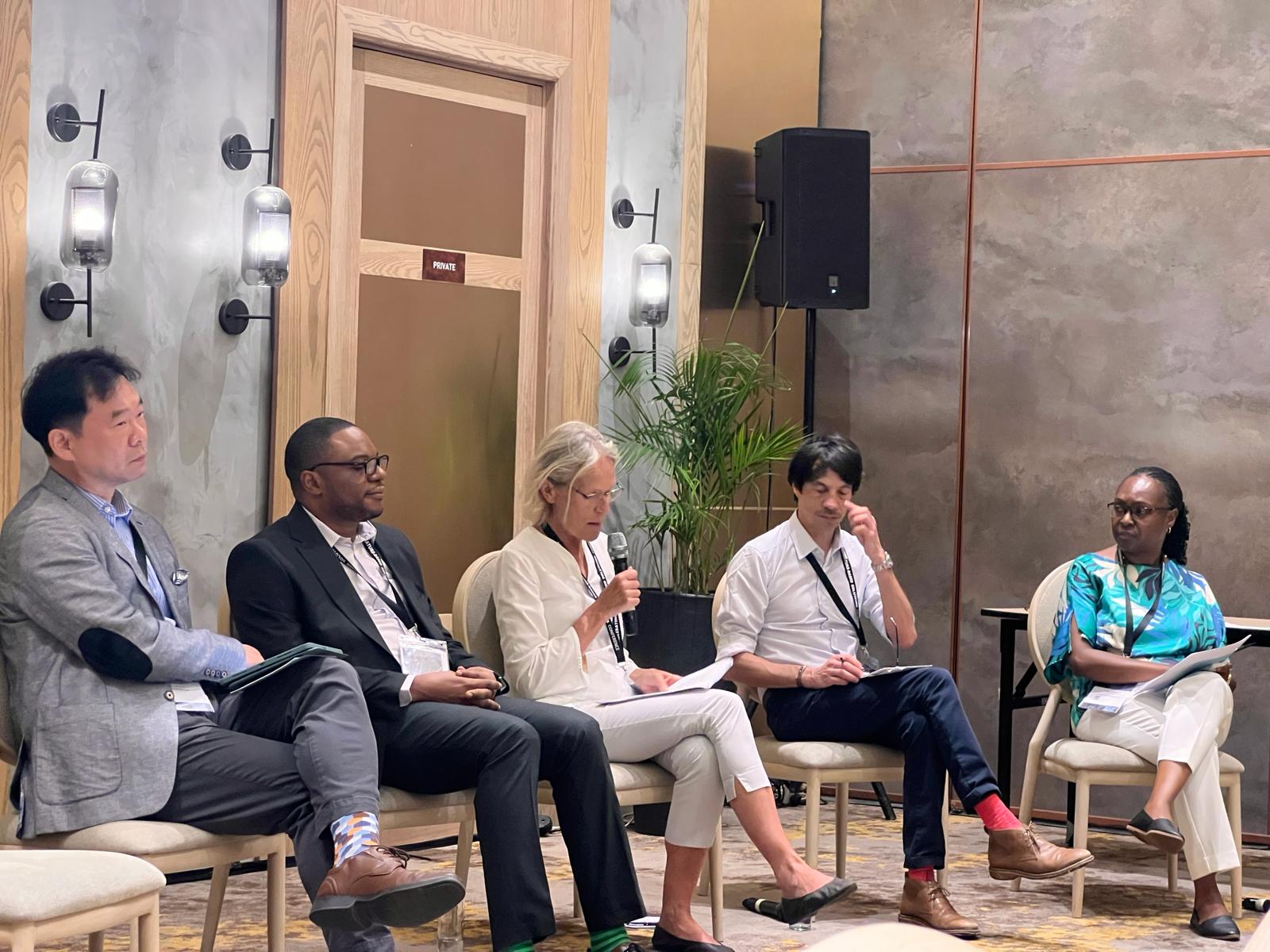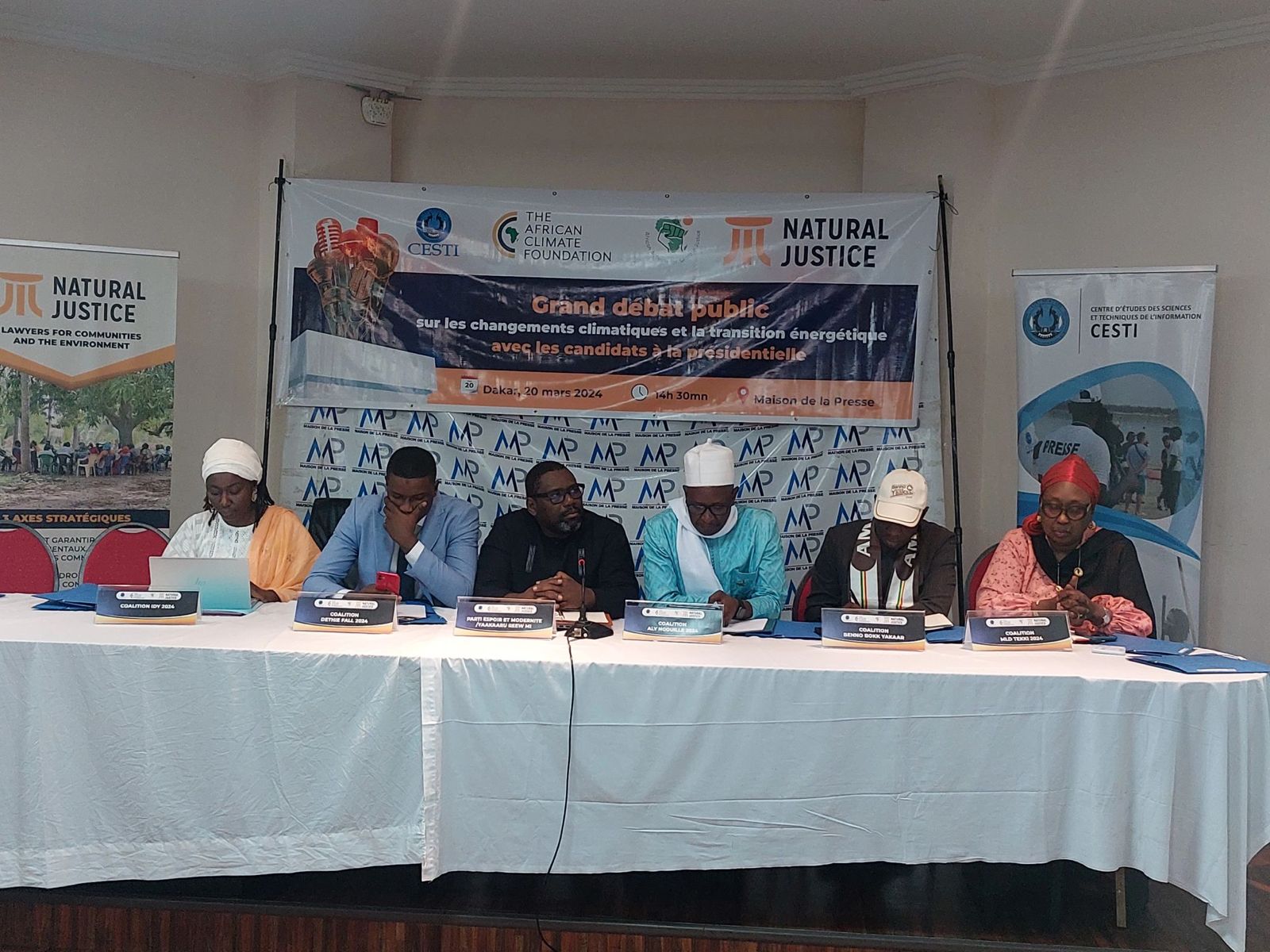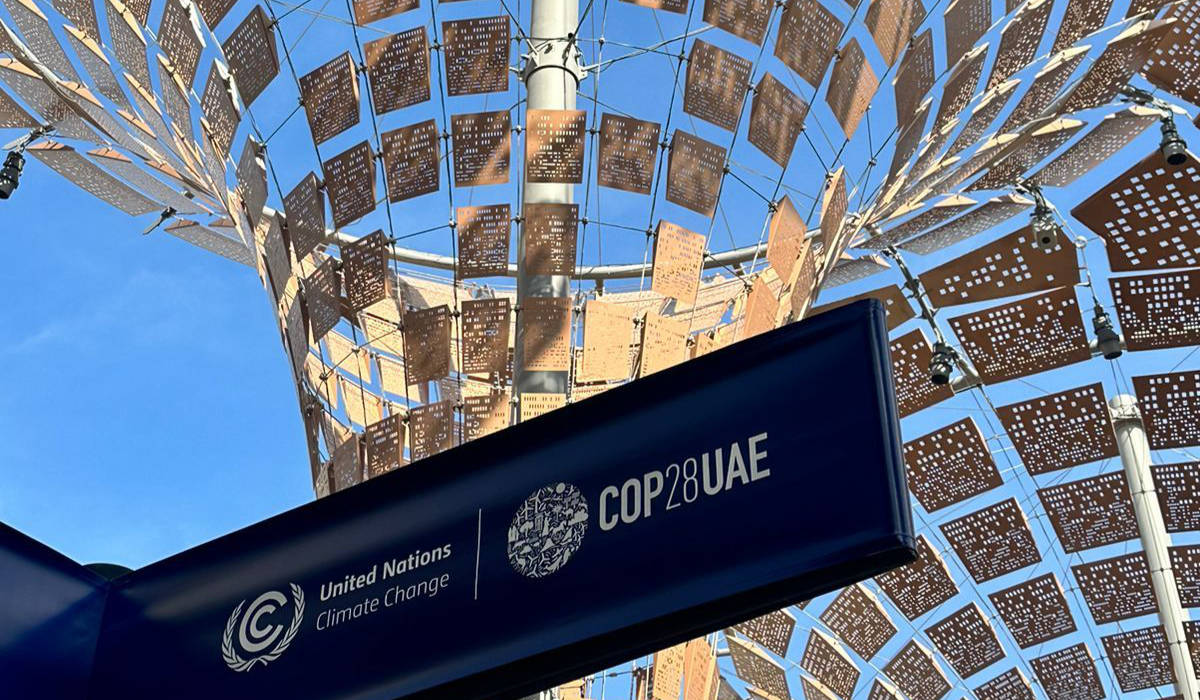By Mshai Mkoji
The countdown has begun: in fewer than five months, the world’s leaders, civil society and business will meet in Egypt for COP27.
It’s significant that global decision-makers are returning to Africa for this round of climate talks. As far as the continent is concerned, it cannot be business as usual in Sharm el-Sheikh in November.
Countries that contributed least to carbon emissions are suffering the most – and are being asked to make the biggest sacrifices without the necessary support.
Africa may not have sown the wind when it comes to climate change, but we are reaping the whirlwind. We can no longer tolerate empty promises and vague commitments emerging from these all-important talks.
The clock is ticking and, as a continent, we know what we want from this COP. Yet our voices aren’t being heard. Those at the forefront of discussing African climate issues tend to be people outside of the continent, research has found. And our experts aren’t being drawn on enough. Reuters recently released its much talked about Hot List of “the world’s top climate scientists”. Of the 1,000 people listed, only five were from Africa.
That’s why The African Climate Foundation (ACF) will be spending the next few months in the run-up to the conference drawing together African experts from across the spectrum to talk about #TheCOPWeNeed and the climate response Africa deserves.
As ACF’s project leader for this COP, I am excited to present these voices to you. From young changemakers to seasoned academics, policymakers to grassroots activists, Africans have long contended with the effects of climate change and have plenty of insights to offer. We’ll be bringing you this chorus of voices that has been sidelined for too long.
To kick us off, here is my take on what #TheCOPWeNeed will do for the world’s youngest and fastest-growing continent:
1. Put development at the core
This year’s climate talks must recognise that climate change is no mere environmental get-together.
Gone are the days when COP was a forum to talk exclusively about environmental issues without acknowledging the social and economic impact these have on communities across the developing world in particular. If we do not recognise Africa’s developmental imperative, these talks risk becoming meaningless.
COP27 must align the 2015 Paris Agreement to a broader developmental agenda. We will do this by shifting the narrative away from the top-down, siloed environmental and emissions-only perspective. Talking to Africans about decarbonisation alone is not enough: decarbonisation and low carbon pathways must confront economic risks and enhance resilience.
For example, energy access is not only about clean and green technologies: it must include cheaper and more decentralised sources of electrification that transform the model of energy services and access for developing countries.
2. Localise issues beyond the Paris agreement
The climate talks can no longer decontextualise and delocalise issues that some consider beyond the Paris Agreement.
The decision-makers at the table sometimes fail to graph the breadth of how things are changing outside the Paris process.
For example, advanced economies and blocs like the EU, with its Green Deal, have turned Paris on its head. Their interventions in scaling clean solutions, penalising flows of carbon-intensive goods into Europe and making access to preferential finance for low-carbon technology and infrastructure are aimed at making Europe the leaders in new technology and making decarbonised sectors the new standard for competitiveness. All this is happening without considering the implications for African economies.
Instead, Africa ends up stuck in old forms of climate diplomacy and style that don’t consider these sorts of shifts.
To move Africa towards a decarbonised economy, its climate ambition cannot be divorced from the global economic system and its relationships with other trade and economic partners, which are tilted towards decarbonisation.
Negotiators cannot ignore this broader setting and the need for an enabling environment for decarbonisation and economic diversification.
COP27 can –and must – help by pivoting discussions on adaptation and climate finance to larger questions of economic trajectories and competitiveness.
Africa cannot enter COP negotiations as if the old game is still being played when the new game and rules are stridently shifting the world into a different trajectory.
3. See financing as an opportunity
There are exciting opportunities for climate finance to catalyse other sources of finance that achieve both development and decarbonisation goals. Nationally Determined Contributions (NDCs) can attract investments into African economies and tackle economy-wide challenges such as green industrial development and manufacturing, enhanced employment and, in those countries that are fossil fuel dependent, embarking on a just transition.
Consider how South Africa was able to turn its NDCs ambition into a platform to secure large-scale climate finance. That move created a dramatic shift in how we think about country platforms and NDC targets. If these can be oriented toward driving clean energy investments, we can do the same for adaptation and resilience.
4. Maintain the momentum
This year’s talks must leverage the heightened interest and involvement in climate change negotiations before and during the conference, till after the fact. We can thus sustain the attention and momentum, resulting in greater levels of success in the delivery and implementation of outcomes.
It is urgent that we do so. The world has had enough of the never-ending promises and reaffirmed commitments over the years that never seem to translate to action. The rate of climate change and its impacts on development and humanity has superseded climate governance and the decision-making process.
It is clear that the cost of climate inaction far outweighs the cost of action. The reality is that all countries will be affected if no action is taken – and some countries more than others. The global agreement to regulate emissions and help countries adapt must be upheld at all costs. Progress on international collaboration on climate change needs to be accelerated and prioritised.
5. Recognise Africa’s potential
For too long, the narrative around Africa and climate transition has focused on the continent as a risk to the global drive towards decarbonisation. Topics that dominate the discussion on Africa are security threats, the “inability” of African countries to meet targets, and others.
It is a framing that wraps Africa’s climate challenges as victims without agency.
Lost in the discussion is a constructive narrative about the continent’s enormous potential and the opportunities it offers – not to mention the resources needed to unlock these opportunities, and the responsibilities of developed countries.
There are several factors in our favour: the size of the African economy and its growth potential, the continent’s resource base and, more generally, the nascent nature of new technology waves from renewables, electric vehicles and green hydrogen production.
Africa can become a centre of innovation where climate-resilient and other transition solutions are trialled and tested to shape a new development pathway.
Conclusion
In short, #TheCOPWeNeed is one that strengthens the global response to the threat of climate change, promotes sustainable development, and supports efforts to reduce inequality and eradicate poverty. It is a COP that builds contextually relevant climate action, both within and outside the Paris Agreement.
As the ACF we are aware of the importance of these climate negotiations, as well as its limitations. The fact is, COPs have failed to translate commitments into action. As Egyptian President Abdel Fattah al-Sisi put it, this must be the COP “when the world moved from negotiation to implementation and where words were translated to actions”.
Therefore ACF’s support ahead of COP27 will locate and align COP ambitions and issues within the broader climate change and development project in Africa. COP27 may not be an end in itself, but we nonetheless need a COP that elevates the voices of African policy makers, economists, development specialists, think-tanks, grassroots organisations and campaigners who are working on the ground to advance solutions and climate justice, demonstrating why Africa holds an important space in global climate action.
Stay tuned: my continent’s people have lots more to say – and we’ll no longer be ignored.



